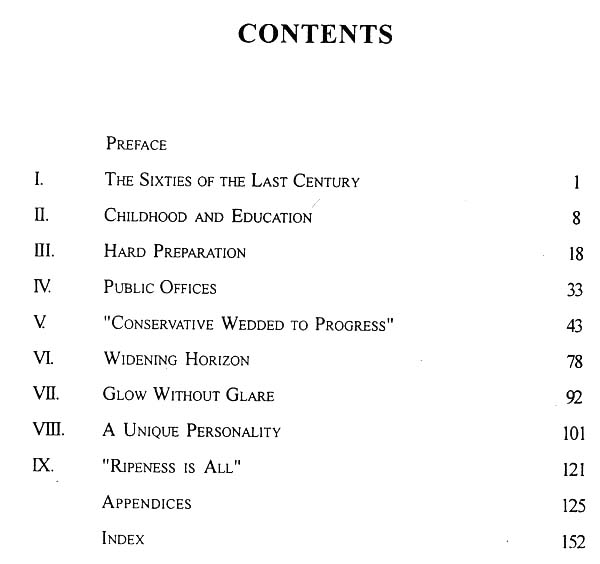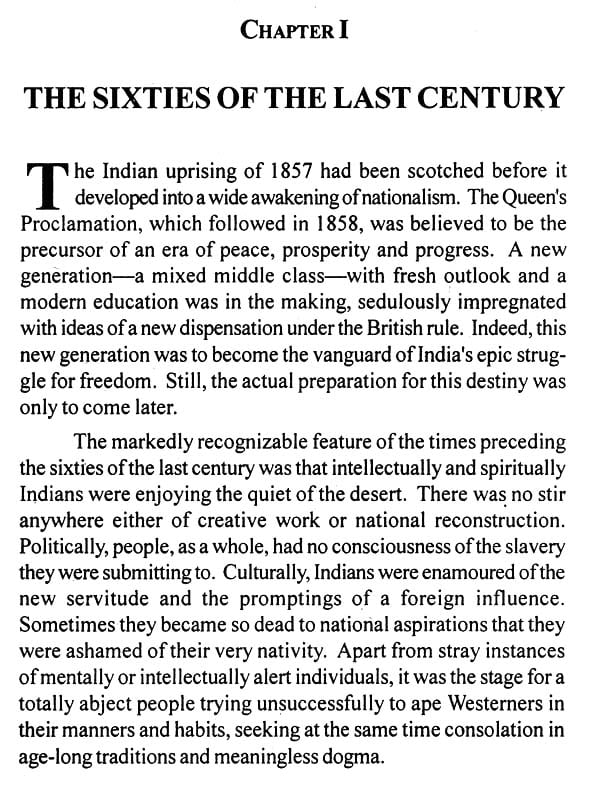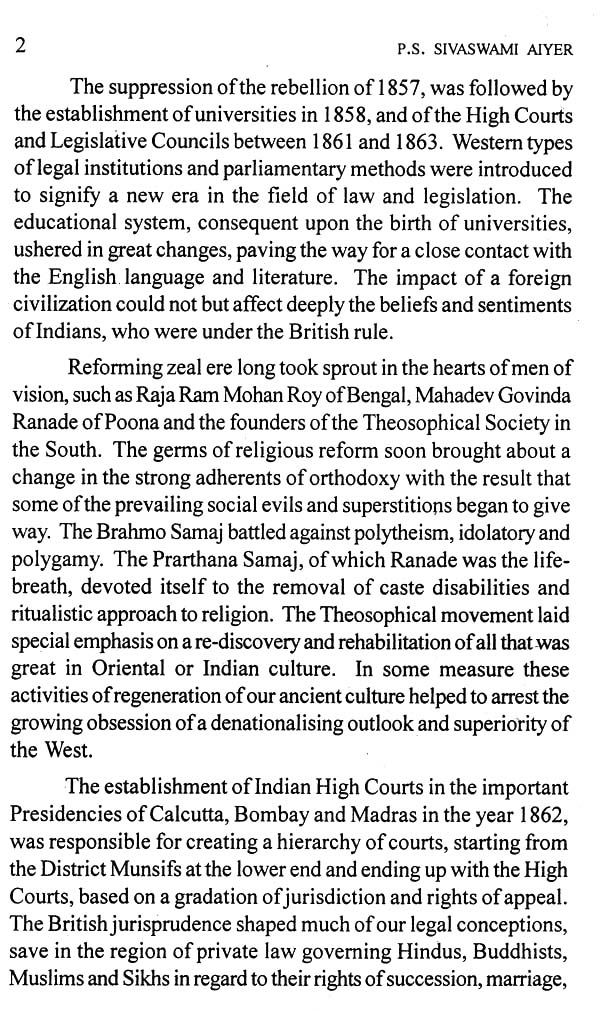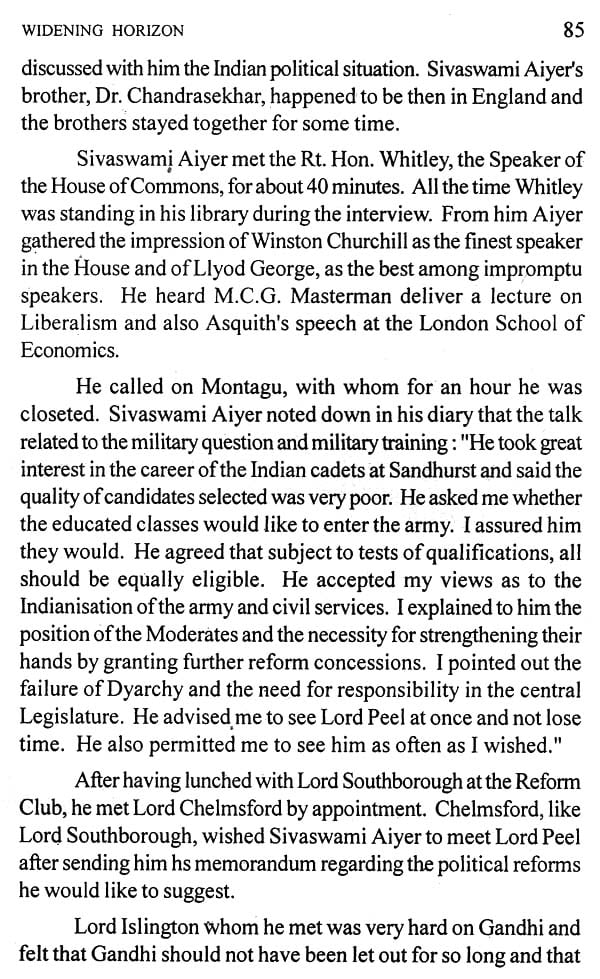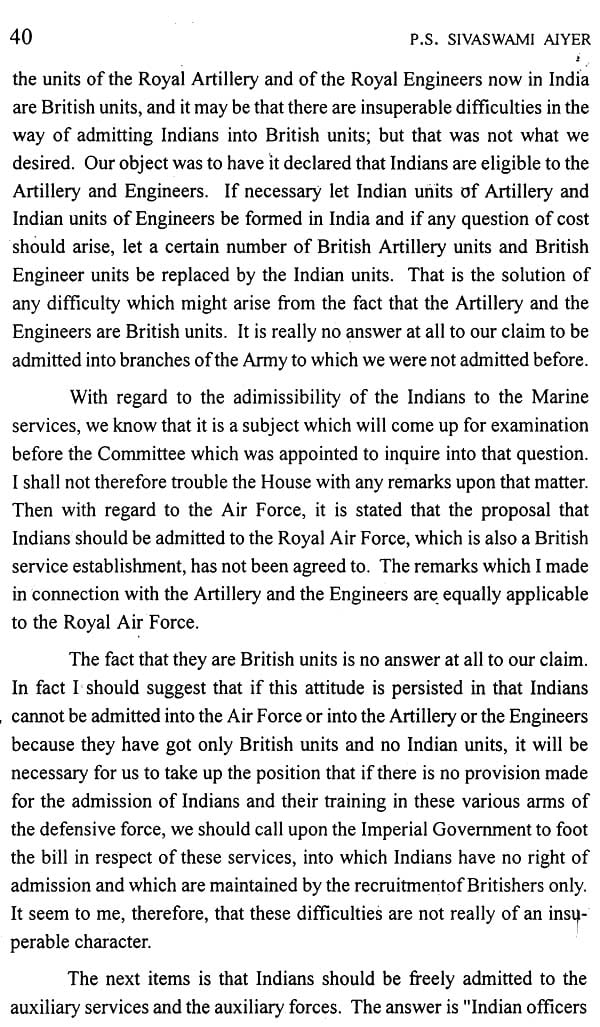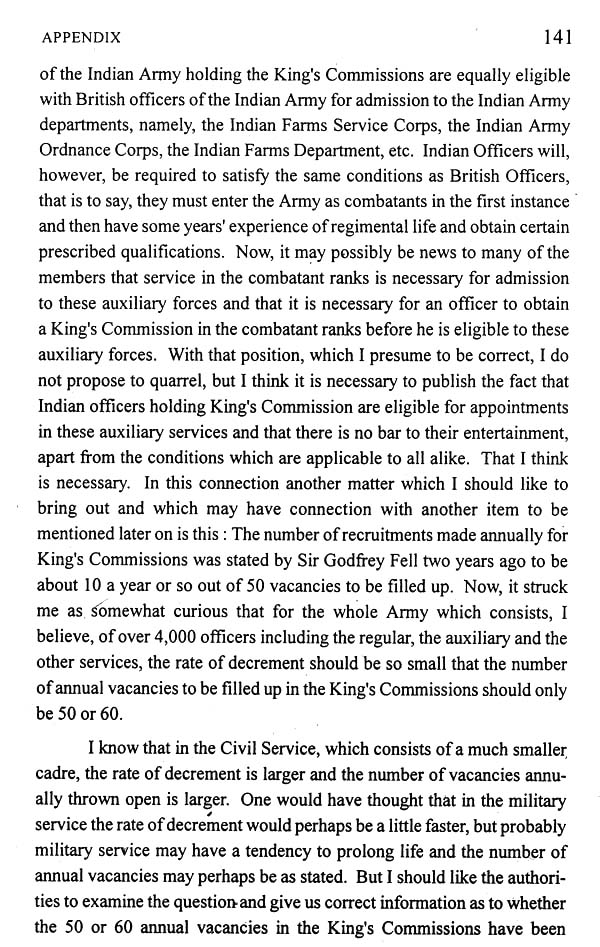
P.S. Sivaswami Aiyer
Book Specification
| Item Code: | NAU707 |
| Author: | K. Chandrasekharan |
| Publisher: | Publications Division, Government of India |
| Language: | English |
| Edition: | 2000 |
| ISBN: | 8123009046 |
| Pages: | 158 |
| Cover: | PAPERBACK |
| Other Details | 8.50 X 5.50 inch |
| Weight | 220 gm |
Book Description
Dr. P.S. Sivaswamy Aiyer, about whom the book is written, is a multifaceted personality who belonged to the earlier generation of Indian leaders. Making a mark in various fields ..1 in the pre-Independence era, Dr. Sivaswamy Aiyer, in a way, reminded the Britishers of India's emerging modern intellect and awareness. He was a discerning scholar, legal luminary and Supright administrator besides being a self-effacing philanthropist.
K. Chandrasekharan, with personal knowledge of his subject, captures in his racy style the life of Dr. Sivaswamy Aiyer and along with him some important events in our Indian History.
My knowledge of Sir P.S. Sivaswami Aiyer, the apostle of rectitude, has been a part of my inheritance. He and my father, V. Krishnaswamy Aiyar, were almost of the same age and chums while young, and their careers, from school and college up to a fairly good number of years as contemporaries in the legal profession and the political field, ran on parallel lines. Apart from certain temperamental differences, their achievements and character had almost similar features. My personal association with Sivaswami Aiyer in a greater measure started about the year 1925, when I approached him for borrowing from his magnificent library, a book. Since then I developed a reverent affection for him. I had more than once received encouragement from him in my literary pursuits.
More than his attitude to life, his living it in a way according to a plan 'in calmness made', extorted my profound admiration for him. It is, therefore, a source of immense pride to be asked to write his life in however, limited a compass I may be privileged to do it. A gentleman to the core, his actions were dictated by motives of a superior nature. To the last he remained shunning publicity even while his benefactions were unparallelled of their kind. Self-effacing and withdrawing, he walked by himself with his steady steps, never turning back his gaze, nor ever looking around in search of applause. It will be obvious to the reader that Sivaswami Aiyer's career was neither picturesque nor colourful. Still, taken all, it has the subdued music of a stringed instrument that pervades the listener's heart and soul with its measured, yet unfailing tonal qualities of a classical finish.
Among the Builders of Modem India, certainly his place will be secure not so much for any of the panoramic effects, as for solid, substantial services in advancing the interests of the youth. His affection for the youth of the land could not have been better revealed than in the handsome educational endowments he had made in order to sustain the forward march of the nation towards a status of equality with other progressive countries of the world. If he felt seriously that the Indian youth, denied of the training and career in the military service, meant a total handicap for the country on the road to independence, it was no ordinary sense of patriotism which imbued him to study with devotion military problems, and constantly, by speech and writing in the Press, draw the attention of both an unwilling Government and an indifferent public to the crying need of the hour.
The recent publication, by the Allied Publishers, of the sumptuous volume, 'A Great Liberal' has made it much easier and safer for a biographer of Sivaswami Aiyer to accomplish his work without much strain and search for documentary evidence to sustain its authenticity.
Prof. K.A. Nilakanta Sastri has so ably edited under classified headings the varioius writings of Sivaswami Aiyer, that none need find any great hardship to become aware of what phenomenal industry and patience Sivaswami Aiyer had bestowed upon the many problems facing the country in the political, economic, military, social, educational and legal fields. I am much indebted to the book, and I acknowledge with genuine gratitude that it has been a source of much enlightenment also in preparing this short account.
To the Satabhishekam Souvenir Volume, as well as the two separate publications at Mylapore and at Tirukkattupalli to mark the centenary of SivaswamiAiyer's birth, I am beholden for a lot of information pertaining to the inception and growth of the two educational institutions which he founded. Again, to Smt Chellam, the Headmistress of the Lady Sivaswami Aiyer Girls' High School, Mylapore, I am thankful for some of the details pertaining to the early beginnings of Sivaswami Aiyer's life mentioned by her in her tiny volume in Tamil.
Some of the copies of correspondence kept by Sri Gopala Aiyar, the loyal attendant of Sivaswami Aiyer, and his son, as a sacred trust with them, were helpful in providing material regarding a few of the personal aspects of the great man. I am thankful to them both for allowing me to draw upon the contents of some of the hitherto unpublished correspondence. The Appendices that I have added contain extracts from some of the published writings of Sivaswami Aiyer as well as one or two other papers from the private collection kept by Sri Gopala Aiyar. I have to thank his son, G. Subramanyan of Higginbotham & Co., Madras, for allowing me to use the material. I have spelt the suffix as 'Aiyer' wherever Sivaswami Aiyer's name occurs, as he was particular always in subscribing himself with an 'e' instead of 'a' in 'Aiyer'.
I may conclude this preface with the hope that Sivaswami Aiyer's memory will ever evoke in the hearts of his grateful courntrymen an impression of solidity in scholarship, refreshing sanity in public affairs and great respectability of character in all spheres of human endeavour.
**Contents and Sample Pages**
